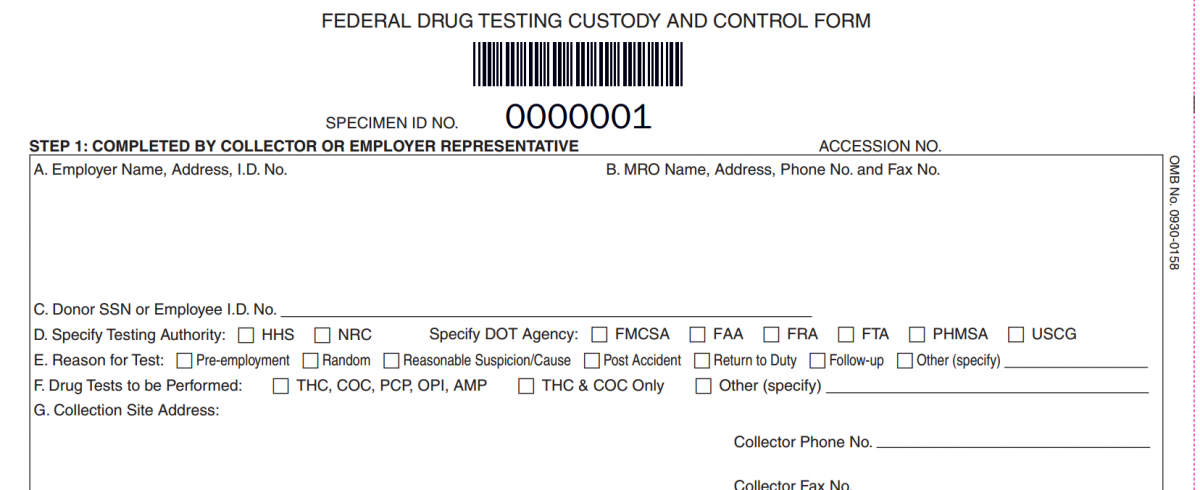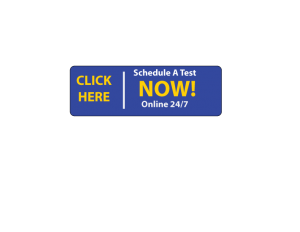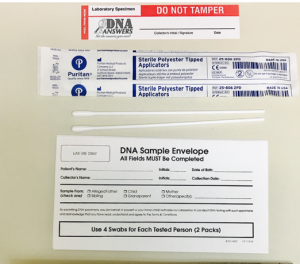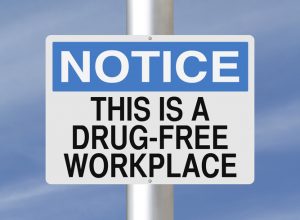
DOT Drug and Alcohol Consortium
DOT RANDOM DRUG & ALCOHOL
TESTING PROGRAM
(As required by 49 CFR Part 40)
FOR
| Federal Motor Carrier Safety Administration (FMCSA) |
United States Coast Guard (USCG) |
| Federal Aviation Administration (FAA) |
Federal Railroad Administration (FRA) |
| Pipeline & Hazardous Material Administration (PHMSA) |
Federal Transit Administration (FTA) |
Accredited Drug Testing Inc (ADT) serves as a consortium / third party administrator (C/TPA) which manages the entire DOT approved Consortium for DOT regulated companies and DOT covered “safety sensitive” employees. The DOT consortium is cost effective and complies with all requirements of DOT 49 CFR Part 40 which mandates that all “safety sensitive” employees be enrolled in a random drug and alcohol testing program.
The Department of Transportation (DOT) has strict regulations requiring regulated companies and independent operators (CDL License Holders) be a member of a DOT drug and alcohol Consortium, failure to comply with these regulations can result in significant fines and other DOT sanctions.
The Accredited Drug Testing Consortium ensures compliance with the DOT regulations and customer service is our number one priority. Our DOT specialist are committed to serving our DOT consortium members in need of a pre-employment drug test, random drug test or breath alcohol test.
A DOT drug test is a 5 panel urine test and all DOT drug tests require a Federal Chain of Custody form, this is a special 5 page form which must be used when a DOT drug test is administered. Accredited Drug Testing provides all members of our DOT consortium a package of Federal Chain of Custody Forms to be used when taking a DOT drug test.
When joining a DOT Consortium, it is important that the Consortium staff be fully knowledgeable of all DOT regulations regarding 49 CFR Part 40 and the DOT random drug and alcohol testing requirements. Accredited Drug Testing Inc prides itself on providing accurate and professional information and services regarding the DOT Consortium.
Accredited Drug Testing Inc is fully versed in the DOT procedures for pre-employment drug testing, random drug testing, reasonable suspicion drug testing, post accident drug testing, return to duty drug testing and follow up drug testing.
When you and your company are enrolled in the Accredited Drug Testing DOT Consortium, your company will receive a Certificate of Compliance (email and U.S Mail) and when any of your drivers or other safety sensitive employees are selected for a random test, the DER (designated employer representative) or you, the independent operator will be sent an email and a phone call will be made to ensure that you and your employee are aware of the selection, provided the closest testing center location and any assistance needed to ensure compliance with the DOT random drug or alcohol test process.
Please Note- If you are currently being audited/inspected or found to be in violation by the Department of Transportation (DOT) and you are calling to join the DOT Consortium or schedule a DOT drug or breath alcohol test, please advise the Accredited Drug Testing DOT Specialist.
Accredited Drug Testing, DOT Consortium – Easy, Cost Effective with Immediate Compliance!
For immediate compliance with the DOT Consortium enrollment requirement or to schedule a DOT drug or alcohol test call Accredited Drug Testing at (800)221-4291.
Accredited Drug Testing Inc has a special DOT Compliance Package for independent operators (CDL License holders) and other DOT regulated companies.
Complete DOT Compliance Package – Independent Operators/Small Companies Includes:
- Pre-employment or Random drug test,
- Consortium Membership (First Year)
- DOT Drug & Alcohol Policy
- Certificate of Compliance
Additional DOT Drug tests may be ordered at a discount when purchasing the complete compliance package.
Call Accredited Drug Testing for additional information and fees (800)221-4291.
To Review DOT 49 CFR Part 40 Regulations- CLICK HERE
Who’s Covered?
- Truck Drivers- CDL Operators
|
|
|
|
|
- Airline Pilots- Flight Attendants
|
|
Additional companies/operators subject to DOT Drug & Alcohol Testing
- If you or your company operate vehicles with a gross weight rating of 26,001 or more pounds
|
- If you or your company operate vehicles which can transport 16 or more passengers. (including the driver)
|
- If you or your company operate vehicles which transport hazardous materials.
|
DOT Random Drug & Alcohol Testing
The Department of Transportation (DOT) requires that all covered employees be enrolled in a DOT approved Random Consortium Selection Program. The selection of any covered employee must be made by a computerized selection process and any covered employee selected for a drug and alcohol test must immediately proceed to take the test once notified.
The Department of Transportation (DOT) determines the percentages that each consortium must select for a drug & alcohol test. As an example the FMCSA Consortium must select 25% of its members for a drug test annually and 10% for an alcohol test.
The Accredited Drug Testing Inc DOT random drug testing program notifies covered employees by email and a phone call and provides the location of the closest testing center for the covered employee to go and take their drug and alcohol test.
Failing to take a random drug or alcohol test once selected can result in substantial fines and penalties by the Department of Transportation (DOT).
Accredited Drug Testing Inc provides a DOT approved random selection Consortium for covered employees who are required to comply with DOT random testing requirements.
Random Testing Requirements For Each Federal Agency DOT Consortium
- FMCSA – Federal Motor Carrier Safety Administration – 25% drug and 10% alcohol
- FAA – Federal Aviation Administration – 25% drug and 10% alcohol
- FRA – Federal Railroad Administration – 25% drug and 10% alcohol
- MOW (Maintenance of Way) – 50% drug and 25% alcohol
- FTA – Federal Transit Administration – 50% drug and 10% alcohol
- PHMSA – Pipeline and Hazardous Materials – 50% drug
- USCG – United States Coast Guard – 50% drug
DOT Consortium Employee List Revisions
Quarterly each consortium member will be contacted by the Accredited Drug Testing, DOT specialist and asked to update the company’s DOT Consortium employee list, prior to the random selection draw (add or remove employees from the consortium). Companies can remove or add employees to the consortium at anytime prior to the selection date. Maintaining an accurate consortium list is an important service provided by Accredited Drug Testing Inc and requires the cooperation of all Consortium Members.
DOT Post Accident Drug & Alcohol Testing
The Department of Transportation (DOT) requires that any covered employee immediately proceed to take a drug and breath alcohol test in the event of an accident which falls under the DOT post accident drug and alcohol testing requirements.
When possible the covered employee can contact Accredited Drug Testing Inc and the drug and alcohol test can be conducted at a testing center close to where the accident occurred, however on many occasions a post accident drug and alcohol test will require an on-site/mobile drug testing service which can be provided by Accredited Drug Testing Inc.
DOT Reasonable Suspicion Supervisor Training
The Department of Transportation (DOT) requires that all DOT regulated companies educate and train all supervisors in how to detect employees under the influence of illegal drugs or alcohol.
Supervisors must complete and successfully pass a DOT approved supervisor training course.
Accredited Drug Testing Inc provides a DOT approved Supervisor Training Course which is web based and which will provide a Certificate of Completion at the conclusion of the course. The course is approximately 3 hours in length and maybe accessed at anytime.
DOT Drug & Alcohol Policy
The Department of Transportation (DOT) requires that any regulated company with two or more employees holding safety sensitive positions covered by 49 CFR Part 40 must have a written DOT Drug & Alcohol Policy and all employees must be provided a copy of the policy. Companies must comply with all requirements listed in the DOT drug and alcohol policy.
Accredited Drug Testing Inc specializes in the development and implementation of a DOT Drug & Alcohol Policy – Call Accredited Drug Testing at(800)221-4291
DOT Additional Requirements/Information
The Department of Transportation only recognizes and authorizes a 5 panel urine drug test and a breath alcohol test for compliance with 49 CFR Part 40.
The Department of Transportation (DOT) requires that a Federal Chain of Custody Form (5 Page CCF) be used with all drug screens and that all breath alcohol testing devices be approved by the DOT.
The staff of Accredited Drug Testing Inc are certified and trained in DOT drug specimen collections and DOT breath alcohol testing.
DOT Audits/Inspections
The Department of Transportation (DOT) regularly conducts DOT Audits to ensure compliance with 49 CFR Part 40. These audits can occur due to being recently issued a DOT License (New Entrant) or complaints have been filed against the company or a follow up audit due to previous violations.
When a DOT audit/inspection occurs the following primary factors are considered,
- Pre-employment drug tests on all covered employees on file
|
- Random Pool Membership on all covered employees
|
- Reasonable Suspicion/Supervisor Training Completed
|
- Written drug and alcohol policy
|
- Copy of DOT regulations on file
|
- All DOT Licenses are current
|
DOT Physicals
The Federal Motor Carrier Safety Administration (FMCSA) requires that all drivers holding a CDL License must successfully pass a DOT physical to be issued a CDL Medical Card. The Medical Card is valid for 24months and must be renewed every 2 years with a new physical.
Accredited Drug Testing Inc provides DOT physicals nationwide at most drug testing centers and our affiliated medical facilities. All DOT Physicals are administered by an examiner trained and certified by the FMCSA.
Accredited Drug Testing Inc is your “one stop shopping” for all DOT Drug Testing and DOT Breath Alcohol Testing.
To join the DOT Consortium or schedule your DOT Drug Test or DOT Alcohol Test Call, (800)221-4291
Specializing in DOT drug and alcohol Consortium regulations.
“When You Need A Test, Choose The Best!”
Accredited Drug Testing

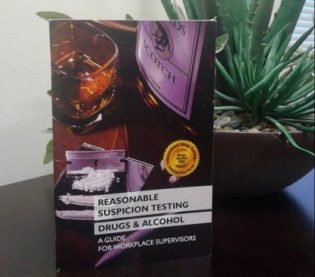



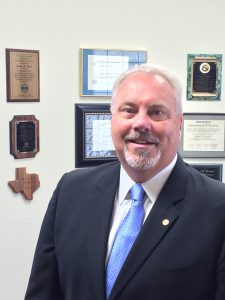 With the fall leaves changing and colder weather arriving, Accredited Drug Testing and our affiliated companies, Health Screenings USA, American Drug Testing and our newest acquisition Coastal Drug Testing, are appreciative for the tremendous growth we have experienced due to the hard work and dedication of our staff, but most importantly our clients and customers who have chosen us to serve their drug and alcohol testing needs.
With the fall leaves changing and colder weather arriving, Accredited Drug Testing and our affiliated companies, Health Screenings USA, American Drug Testing and our newest acquisition Coastal Drug Testing, are appreciative for the tremendous growth we have experienced due to the hard work and dedication of our staff, but most importantly our clients and customers who have chosen us to serve their drug and alcohol testing needs.